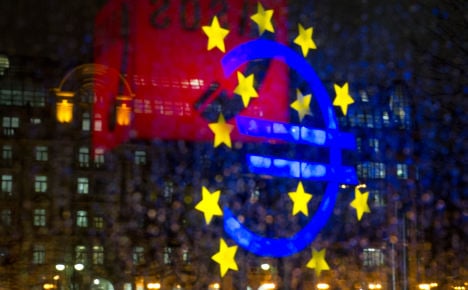It was the greatest worry for 68 percent of those asked in the annual survey for insurers R+V Versicherung – down five percent on last year but still enough for top spot.
This is the second year in a row that Germans listed the European debt crisis as their greatest worry.
Manfred Schmidt, a political scientist at the University of Heidelberg said: “The fear is understandable. The management of the debt crisis by the European Union could still be expensive for German taxpayers,” the Bild newspaper reported.
But despite the economic crisis, the fear that politicians were not capable of dealing with problems was at its lowest level since 2001, with 45 percent saying it was a worry. It suggests that trust in the ability of politicians is surprisingly high three weeks before Germans go to the polls.
Inflation took second spot, with 61 percent saying they were concerned about it, down slightly on last year. German wages have struggled to keep up with rising energy, fuel and food prices.
Natural catastrophes were up one place to third in this year’s survey, with 56 percent concerned. It follows serious flooding in eastern Germany this spring. Fear of natural catastrophes reached a peak in 2010’s survey after a volcano erupted in Iceland and the oil spill in the Gulf of Mexico.
Concern about care in old age rose five percent to fourth spot. Women were more concerned about health care and illness than men.
The most optimistic people, meanwhile, were Berliners and those living in Thuringia. The most pessimistic German states were Saxony-Anhalt, Mecklenburg-Western Pomerania, Brandenburg and Bavaria.
Fear of unemployment scored 36 percent, while 32 percent of the 2,400 respondents said they were worried about the Syria crisis.
DPA/The Local/tsb



 Please whitelist us to continue reading.
Please whitelist us to continue reading.
Member comments